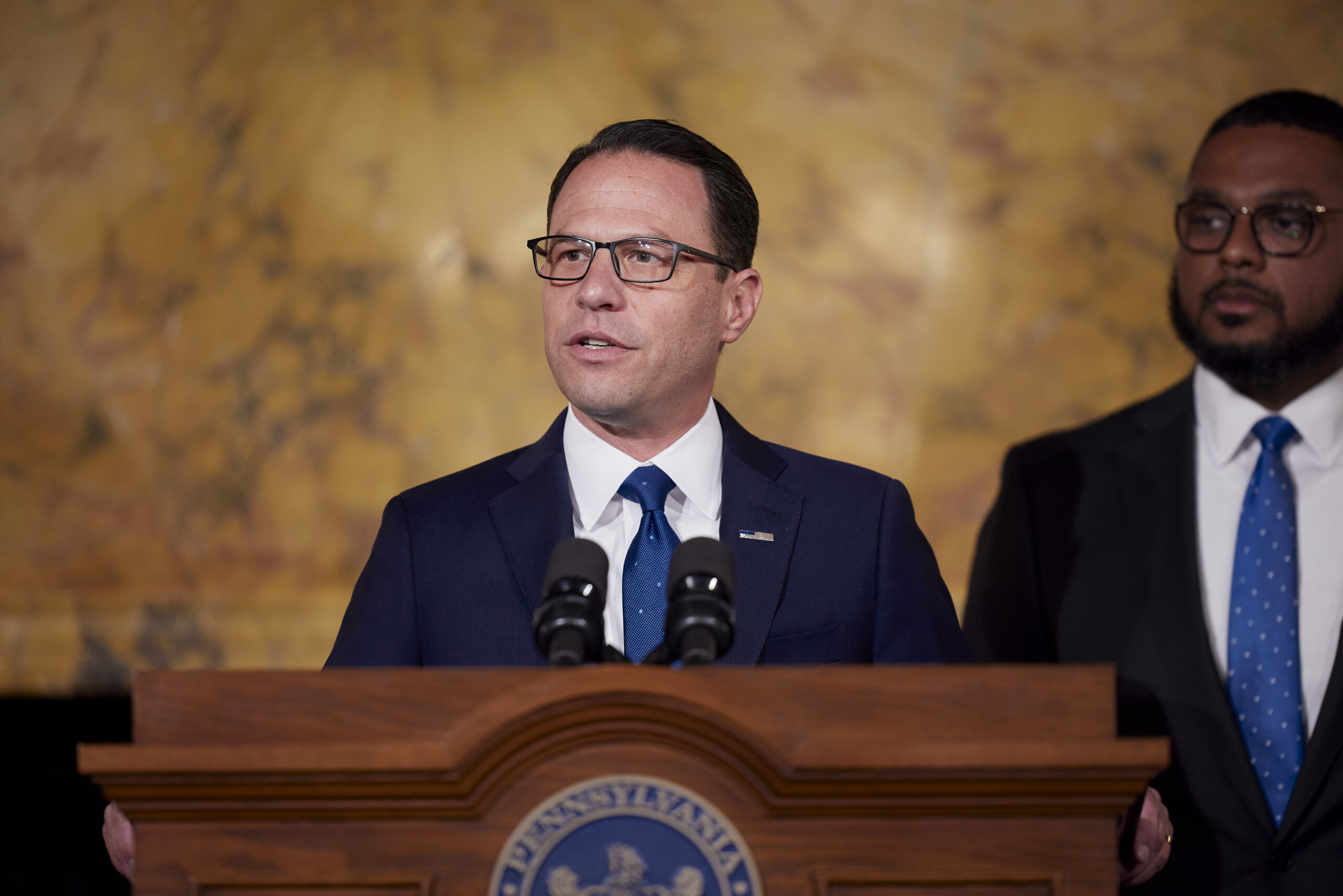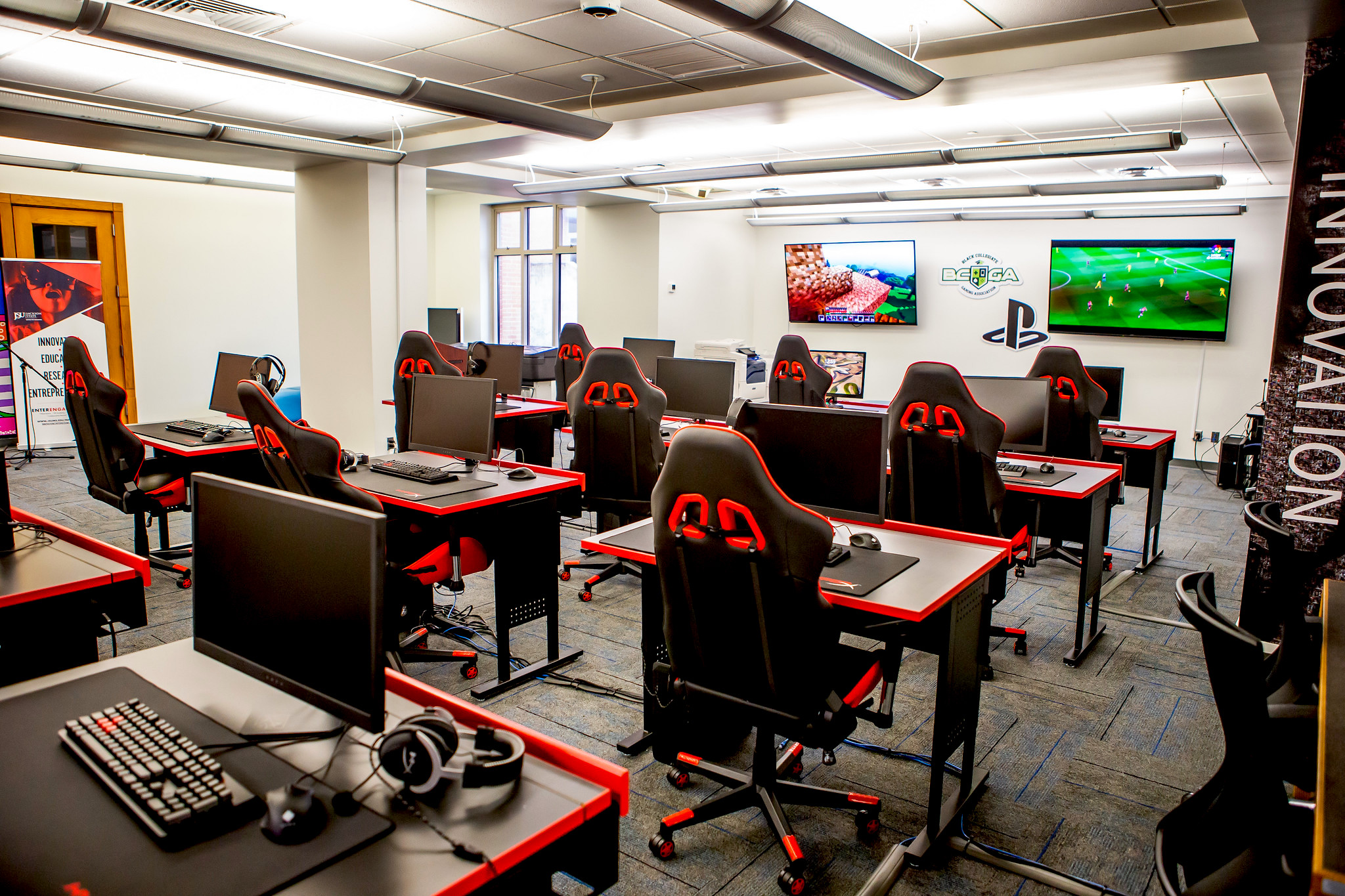A nation of critical thinkers would, from the perspective of citizen loyalty, be a dangerous thing, writes

Real-time stock market ticker in the lobby of the U-Mass Lowell business school, 2017. (Corinna Barnard)
By Lawrence Davidson
TothePointAnalysis.com
 Public education in the United States has always had very specific objectives.
Public education in the United States has always had very specific objectives.
No. 1: It aims to produce qualified workers for a multilayered labor market. Two hundred years ago, at the college level, this meant doctors, lawyers and Protestant pastors.
For the last one hundred years or so, higher education has served a broader middle-class, white-collar market. The shortage of “vocational-tech” options is a function of modern cultural bias — such career paths have long been seen as lower class and traditionally came through an apprenticeship.
These were careers that got one’s hands dirty. Even today such work does not lead to high starting salaries. Educational institutions did not create these dichotomies. They just conformed to them.
No. 2: Public education aims to produce aware and loyal citizens. This used to be done at the lower educational levels in civics courses, but many of these have fallen victim to financial exigencies.
U.S. history and courses on “government” offered at middle- and high-school stages were supposed to pick up where civics left off. However, this was never a systematic effort. When it comes to higher education, enrollment in courses in U.S. history and relevant political science offerings suffer due to the “consumer” approach to education.
Students often see such courses as requiring “too much work” and, of course, what does one do with a “history major?” Business courses are all the rage —again for economic and class-based reasons.
Please note that the production of aware and loyal citizens is not the same as graduating critical thinkers. In fact. there might be a contradiction between the two.
Today, public education at all levels is confronted with a curriculum crisis. Irate parents want to censor local and national history, the range of acceptable literature and even set limits on what they believe is a tolerable approach to biology.
At the college level, a “market” orientation has led state education administrators to favor the above-mentioned “consumer choice” approach.
Under this system you get the following weirdness: philosophy should compete with English literature and/or history, etc. for “consumer” student enrollment — after all, all these subjects supply “the same humanities credits.” Education has finally turned its back on the ideal of a liberal arts education.
Demise of the Basic College Degree?
It is against this background that a move is growing in both government and some categories of business (high tech) to do away with the college-degree requirement for many entrance-level positions.
This is a trend that will no doubt continue and reflects a return to the older definition of education as a path to a vocation. It also says something about the true status of the loyal citizen.
On Jan. 18, in one of his first official acts as the new governor of Pennsylvania, Josh Shapiro officially removed the requirement for a basic liberal arts college degree for over 90 percent of positions in the state’s government — about 65,000 jobs. In this he was preceded by Maryland and Utah.

Josh Shapiro at a press event in November 2022 as governor elect of Pennsylvania. (CC BY 2.0, Wikimedia Commons)
The New York Times columnist, Frank Bruni, commented in a piece entitled “Something very important for Democrats just happened in Pennsylvania” that he saw it as recognition that the basic liberal arts degree “is … often less relevant [in the job market] than work and life experiences that have nothing to do with lecture halls.”
He might have just as well put it the other way around, that the American labor market does not require liberal arts experience (perhaps available in some lecture halls) at all. It only requires knowledge in terms of specializations. Either way you want to phrase it, the U.S. job market is slowly doing away with the liberal arts degree as a job required credential.
Most folks think this is a good idea. As the editors of the New York Times put it,
“It would bring a greater degree of openness and fairness into the labor market and send a message about the government’s ability to adapt and respond to the concerns of its citizens. In a country where a majority of people do not have bachelor degrees [63 percent], policies that automatically close off jobs to so many people contribute to the perception that the system is rigged against them.”
The NYT leaves out the fact that such “rigging” is inevitable given the sort of class-conscious capitalist system the U.S. boasts as its own.
Support CN’s
Winter Fund Drive!
A good part of the college student body is probably thinking, “it is about time!” Most faculty members at the nation’s colleges and universities have long recognized that an embarrassingly high number of their students do not want to be where they are. It is the credentialism culture that got them into the classroom and kept a lot of them there for four or more years.
In other words, most students do not enjoy studying and, even given lots of enticements, have only a narrow range of interests. I once asked a lecture hall full of students how many of them would opt for a less demanding route to what they considered a good job.
Two-thirds of the class raised their hands. I knew back then that someday this would cost folks like me our own jobs.
What is Higher Education to Do?

Classroom in Jackson State University in Mississippi. (U.S. Department of Education, Flickr, CC BY 2.0)
Let’s now turn to the Philadelphia Inquirer’s columnist Will Bunch, who on Jan. 29 wrote about his recent experience at the Yale Higher Education Leadership Summit, a meeting of “roughly 50 of the nation’s top higher-ed leaders.”
Here Bunch confirms that “the women and men who run America’s 4,360 four- and two-year colleges and universities are acutely aware” of the crisis of credentialism. They know that “enrollment in U.S. colleges have [sic] fallen by 1 million students in the last two years and is still falling.”
Indeed, to the extent that credentialism may no longer fuel the demand for a college education, America’s colleges and universities are facing a potential “existential crisis.”
Actually, there has long been a standard, if inadequate, answer to this problem. Bunch quotes Robert Iuliano, president of Gettysburg College: “Colleges need to stress not only the economic benefit of an advanced education but also a sense of commitment to the common good, the commonwealth.”
Bunch follows up by noting that it might be “a dubious idea that higher education is almost solely about careerism, and not the wider knowledge and critical thinking skills that comes from liberal arts learning.”
This lament over missing learning paths to worldly wisdom is not going to save academia, because such goals were never primary for American schools at any level.
Therefore, the claim that college and university education gives most students a “commitment to the common good” or “critical thinking skills” or even a sense of human accomplishment over time, is at best an idealization and at worse a conceit. For instance, consider the following:
According to the Foundation for Critical Thinking: (1) “Most college faculty at all levels lack a substantive concept of critical thinking.”
(2) Most college faculty (about 86 percent) don’t realize their own deficiency in this regard and believe that they sufficiently understand critical thinking. They “assume they are already teaching it to students.”
(3) “Lecture, rote memorization, and (largely ineffective) short-term study habits are still the norm in college instruction and learning today.”
The sixth annual analysis of core curricula (2014) of 1,098 four-year colleges and universities by the American Council of Trustees and Alumni found that just 18 percent of schools require American history to graduate, 13 percent require a foreign language and 3 percent economics.
The head of the survey, Michael Poliakoff, says “the lack of a rigorous core curriculum is behind the failure to learn. At stake, he says, is the nation’s civic and economic health.”
The lack of a broader knowledge-based curricula may negatively impact “civic health,” but it cannot be blamed for a failure to supply the needs of national economy. The system is simply not designed to meet Poliakoff’s broader goals. Let’s elaborate a bit on the points made at the beginning of this essay.

Students at North Elementary School – Morgantown, West Virginia. (U.S. Department of Education, Flickr, CC BY 2.0)
As noted, the notion of educational proficiency has always been tied to making a living. In other words, over the ages, either through apprenticeship or formal schooling, what most students have learned is what their economic environments required of them.
Thus, today, whether one wants to be a business person or a computer technician or a plumber, the primary curriculum is vocational and everything else is, shall we say, elective.
This elective category may or may not include critical thinking skills which, in any case, is a subject that is often looked upon with suspicion by local school boards. By the time American kids are in junior high school, a good number of them know the difference between what is vocationally valuable and what is not, and most focus their attention on what they believe will be economically beneficial.
This means that it is not the school per se, or the teachers, that are actually setting the priorities for learning. It is the community job market.
Given this market-based criteria for learning, almost all American schools, even the “failing” ones, deliver employment knowledge relevant to their locale. You might think that this claim is off base, but it really is not.
High-end public schools cater to students who, by virtue of their class (and in the U.S., racial) background, mostly have professional career expectations. And that is the educational preparation they get.
Just so, low-end schools (admittedly underfunded) cater to those who for the most part have been conditioned by their circumstances to have different expectations, and they are educated accordingly. I am certainly not claiming this is a good thing, only that this is the way it works.
When it comes to producing a loyal citizen the goal of civic awareness has gone out of fashion. It now appears sufficient that students in the lower grades learn a sanitized and idealized story of their country and internalize the myth that it is the “best and freest” nation on the planet — all of which is reinforced by their general cultural milieu and the media.
What of the 32 percent of the student body going to college? Well, they too are deficient in civic awareness, and almost all of them will stay that way. Any radical leftists floating around the edges of our universities and colleges are, at present, no threat to the system, dysfunctional as it is.
At this superficial level, producing loyal and passive citizens is something our schools do pretty well. The uncritical thinking aspect of this goal serves a purpose and puts in doubt the place of critical thinking in any national curriculum.
For a nation of critical thinkers would, from the perspective of citizen loyalty, be a dangerous thing. It brings up the question of whether you can have a stable community when everyone is thinking critically about how the community is being run.
If this trend back to a vocational, consumer choice curriculum at the level of higher education continues, the numbers of college and university students, and their faculty, will continue to fall. In the process, those who will go the way of the dodo will be just those associated with that ideal of higher education as a route to “commitment to the common good” and “wider knowledge and critical thinking skills.”
They are just not vocationally necessary. And therefore, more and more educational administrators (themselves products of vocational education), ever budget-conscious, are already deciding that tossing such topics overboard, or at least making them optional, is the only way to keep the consumer-centered academic boat afloat.
Lawrence Davidson is professor of history emeritus at West Chester University in Pennsylvania. He has been publishing his analyses of topics in U.S. domestic and foreign policy, international and humanitarian law and Israel/Zionist practices and policies since 2010.
This article is from his site, TothePointAnalysis.com.
The views expressed are solely those of the author and may or may not reflect those of Consortium News.
Support CN’s
Winter Fund Drive!
Donate securely by credit card or check by clicking the red button:


A childhood full of bullying and abuse made me reluctant to accept the cliches and factoids more are taught early in life. My third grade teacher taught us that we should not believe things just because they are written in a newspaper or a book was the extent of my formal cri;tical thinking training.
I did have to read Fischer’s HISTORIANS’ FALLACIES at one point, but it was mostly about lazy rhetoric, not logic or critical thinking per se.
Things were not better in the “good old days”.
Pretty good, Dr. Davidson! But you forgot to mention that we have always imported our scientists and engineers, our Einsteins and Teslas and Fermis. In recemt decades. they’ve come from China and India, but for how much longer?
So what else is new? In the US “$” has always been the most important item on any agenda. A very materialistic society with little or no regard for all those who struggle.
Not one mention of the outrageous cost of even a B.A. these days, before one goes on to the marketable post grad degree? As though that’s not the basic problem? Who’s going to rock the boat when they’re looking at a six figure debt at the beginning of their adult life?
Many years ago, when it was clear that a majority of the students in my classes ‘didn’t want to be there’ and had no native interest in learning what I was there to teach, I left the university for the wider world; I could see no point in subjecting myself to what was a slow simmering humiliation in which I tried to entice the ‘unenticable’.
Who, or what kind of person, with what kind of power and influence, decides that the a country should decide to dumb down its people – and can actually get that done.
One horrible influence has been the media, TV, movies, popular news media, etc.
The use our expectations of reality against us. We assume that the people we see around us are normal people, and therefore the people we see in the media are the same as us. It is a prediction our brains make, as our brains as Paul Hawken wrote – are prediction machines.
We think we are so smart because we internalize things and don’t have to think about every little thing that we can take for granted – but that is exactly where we are vulnerable. It’s like magic – they know our habits from thousands of years of civilization and recorded experience – but that experience is only given to some.
So, what happens when evil gets access to that experience?
Six decades ago the idea that a ‘broad’ education was a primary benefit of college was certainly part of what I grew up with but I don’t recall a great deal of exposure to ‘critical thinking’ (if that’s as close to ‘analytical competence’ as I think it is) in the ‘liberal arts’ college courses that I was exposed to though it was a core aspect of the STEM courses toward which I gravitated more naturally and in which controversy among ideas was an integral part of their history. A more broadening aspect of my college experience was exposure to a wider spectrum of people and ideas than I had encountered in my home town even though that aspect was hardly as obvious to me at the time.
So I question whether mere requirements for greater exposure to liberal arts in college would be sufficient to encourage better critical thinking in college graduates unless those courses emphasized controversy more than they often did back in the ’60s. Today critical thinking (if one can draw this conclusion from national voting patterns, though primaries do sometimes expose a hint of it) puts one at odds with the majority of Americans as well as with the massive preponderance of what we’re exposed to in our culture, so the demand for it is virtually nil. For sole focusing on trades the need for four years of college is arguably small compared with two years (to ensure that the basics are covered adequately) plus perhaps some real-world experience afterward. For students who want (and can afford) more breadth four years is a good start toward a more involved life if it includes those critical thinking skills that are so dramatically lacking.
That makes me think of when Ross Perot ran for President in 1992 and tried to model some critical thinking to the American public. He brought in charts and graphs ( which have since been outlawed in the Presidential debate rules ) and everyone made fun of him. Our political campaigns are shameful. Is it the candidates or is it the people, or is it the process or the media? The full realization of how things are really means that the elites are continually working on distancing the people from power and information more and more under the system we have. I used to appreciate George Orwell’s 1984 so much more than Aldous Huxley’s Brave New World, but now I see they were both very perceptive about trends that would be playing out and evolving in the future. Even H. G. Wells, we are breeding two kinds of people, it is the old American eugenics program done under the radar. Did we fight the Nazis because their ideology was evil, or did we fight them to take over from them – after all Hitler got a lot of his ideas from American fascists?
“Gentlemen, you are now about to embark on a course of studies which will occupy you for two years. Together, they form a noble adventure. But I would like to remind you of an important point. Nothing that you will learn in the course of your studies will be of the slightest possible use to you in after life, save only this, that if you work hard and intelligently you should be able to detect when a man is talking rot, and that, in my view, is the main, if not the sole, purpose of education”.
– John Alexander Smith, Professor of Moral Philosophy, Oxford University, 1914.
Being able to detect when a person is talking rot is more important today than it has ever been, because so much rot is being talked – often quite deliberately and consciously.
That alone may be the greatest benefit of education.
I agree. Which then makes it clear that so many of our fellow USAmerican citizens seem to have a difficult time parsing what’s rot, from what’s real?
I know a college degree is supposed to be the great panacea of social progress and success. I’ll take a good Amish farmer’s wise counsel over that of an Ivy League grad. (And I’ve known some very wise among the always peaceable, “uneducated” Amish.) We see what the “prestigious” grads give us, predominant as they are in governing us and managing our extraction economy.
Having spent most of my working life in higher education IT management, I can say that the Foundation for Critical Thinking is right on! One dean said to me (in a meeting with all the other deans and provost), “Don’t ask me to learn anything new!” That laziness and complacency is one leg of the four-legged-wobbly stool. The second leg is the capitalist drive that we must constantly increase enrollment so that public universities can “get more funding” to do what? Fund some new pet project–like build a multi-million dollar “wellness center?” The third leg is trying to get to the lowest common denominator. High school graduates come into these institutions from high-achievement “magnate” schools or the dregs of public education where too many don’t have basic language or math skills–let alone any semblance of critical thinking skills. And finally, when you do get through the more than not useless and boring classes to get that piece of paper, you leave with poor prospects and crippling debt. Educated into subservience, which for many will be a life-long fate. I recall a candid conversation of one such graduate who worked in the Philippines for the World Bank. His aspiration when he went for his BA/MA was to work with the poor. He and his wife’s debt (she was an MD) left them having to take higher paying jobs that completely forsook their youthful idealism.
When the plumber shows up at my house, I hope he brings a young man or woman working as an apprentice. That will do more for that young person than a bachelor’s degree. I was educated back in the 1970’s and it was just as true then how few “good” teachers I had. I can count the ones that made any real difference in my life on three fingers. The “subject” wasn’t the important thing they taught me. Each in their own unique way taught me (as my mother had) to see the world as it is while living from a place of gratitude for its gifts and beauty. The pull is always there to drawn into the net of American exceptionalism, but the grounding humility I learned from example as guided my way–pulling me back to reality time and time again.
To young people–if you want to learn something about life in America read Wendell Berry. That should inspire further reading, and there are many prophets we all should read. Christian or not–ponder the Sermon on the Mount. It’s hard to read that and buy into militarism’s lies. Put back the latest book on “the path to success,” and the politicians’ memoirs. Both are filled with the lies that keep the system going. Put aside the rage. Sing a song of peace.
‘They know that “enrollment in U.S. colleges have fallen by 1 million students in the last two years and is still falling.”’
Whoever wrote that [Philadelphia Inquirer columnist Will Bunch] lacked the knowledge of English grammar that all my classmates had at the age of 9. Making such a mistake in any written or oral work, in any subject, would automatically result in the loss of a mark.
“Enrollment” is the subject of “have [sic] fallen” – and it is singular. So the verb should be “has fallen”.
Sorry if it’s elitist to point that out. But I cannot put any faith in the reasoning abilities or memory of anyone who cannot make a verb agree with its subject when they are 4 words apart.
I was an exceptional English student myself once-upon-a-time, and I’d also noticed that- it’s ok, we can’t help it ;)
Tom Welsh:
Though the author takes note of the grammatical error you cite, he also makes an error of his own when he writes:
“This means that it is not the school per se, or the teachers, that are actually setting the priorities for learning. It is the community job market.
“Given this market-based criteria for learning, almost all American schools, even the ‘failing’ ones, deliver employment knowledge relevant to their locale.”
In the last sentence quoted, “this” is singular and refers to “the community job market.” The sentence should therefore read as “Given this market-based criterion for learning, etc.” Had he listed some of the factors that set the priorities in the “community job market,” he could have written (correctly) that “Given these market-based criteria for learning, etc.”
A great article. “Critical thinking” is a natural cognitive function. It is generally not taught by parents or friends. In fact, it is not taught at all. It is an awareness of contradictions and a function of natural curiosity. Our educational system focus on indoctrination and regimentation and discourage natural skepticism and curiosity. A university can revive it – -if it offers a polymathic approach, argument, debate and analysis.
Critical thinking is taught, every single class-day by design, in every nursing school in the country. And in the other sciences as well. You’re right: it could be taught in every topic area beyond the sciences.
An excellent comment. To think that typical American higher education, which was set on the Prussian model of compulsory regimented learning, can do anything but inhibit critical thinking goes against all experience.
One cannot teach critical thinking … though, as you say, there are ways to guide interested and bright people into enhancing their native critical thinking abilities through guided discovery of great writing and argument (Socratic method) as used to be done at the better universities.
Corporate capture of everything creates the money centered lenders in the temple whom Jesus threw out. When
life is reduced to the getting of the material, where does soul go? Without soul, what kind of life is left? Whether personal or collective soul? Introducing: Shallow, Inc.
I don’t think “critical thinking” can be taught at schools or universities. It’s taught by the parents of the students. The unquestioning acceptance and support of the lies and blatant propaganda that we were told about both the origins and treatments of the pandemic and the war in Ukraine are proof of that. Our most elite universities have produced sociopaths of the stripe of George Bush, Condoleezza Rice, Dick Cheney, Donald Rumsfeld, Hillary Clinton, and yes, Barack Obama. Joe Biden is their current representative. In my opinion, the US, in reality, has devolved into a police state domestically and a worldwide military dictatorship internationally, and no one has noticed. Ironically, RT”s (Russian Television) logo “Question more” is more profound than the US claim that we are “The land of the free”.
I wish more colleges paid more attention to real world and to United States history. I was very lucky and attended a wonderful high school, and my parents paid for my college . I was very fortunate in those areas. However, once out into the world, I certainly met a lot of strange , mainly power grabbing people—and I was happy that my high school years had prepared me for college, and for the world afterwards.
Sadly nations do let citizens down and we are in a down movement now. Maybe the fault also lies in people believing that whatever America decided—must be the right way to go.I am sorry that war is often decided as the way to make decisions. The planet grows smaller as wars grow more horrific. How ironic though, that so many who applaud war seem to feel that war is the answer—–I wonder what they think that the question is?
“..Irate parents want to censor local and national history, the range of acceptable literature and even set limits on what they believe is a tolerable approach to biology. …”
In a minority of cases yes…but its a top down driven woke system that does this to the core subjects..not parents.
The destruction began with the use of the phonetics based “learning”..to read..
The system isn’t all that “woke” at all. It’s only pretending to be.
Drapetomania:
I recognize that accusing someone of being “woke” is meant to disparage them, but with respect to knowledge, I’d rather be “awakened” than somnambulant.
“In a country where a majority of people do not have bachelor degrees [63 percent], policies that automatically close off jobs to so many people contribute to the perception that the system is rigged against them.”
Or, more accurately:
In a country where a majority of people cannot afford a BA, policies that automatically close off career possibilities to so many people contribute to the not entirely inaccurate perception that the system is rigged in favour of the rich. Additionally, a country where union busting is celebrated and even has its own specialized lawyers contributes to a negative perception of blue collar culture and the kinds of jobs that define it.
I agree – “blue collar” has been equated with “manual labor” which is generally looked down upon – how ironic that in the pandemic these “blue-collar” folks were the “essential workers” that held the whole thing together – reminds me of a joke about different body organs arguing about who was the most important – the brain said it was because it coordinated the whole system, the heart said it was because it pumped the fluids which nourished the whole system – when the anus said it was, they laughed hysterically – so the anus shut down and pretty soon the brain and the heart weren’t feeling so well and after a while they said, OK, OK, please open up, you are the most important!
There are some folks for whom “book larnin” just doesn’t do it – for whom the greatest satisfaction comes from working with their hands, to create, to fix, to build – where would we be without such – and “critical thinking” comes in many forms.
delia ruhe:
Excellent!